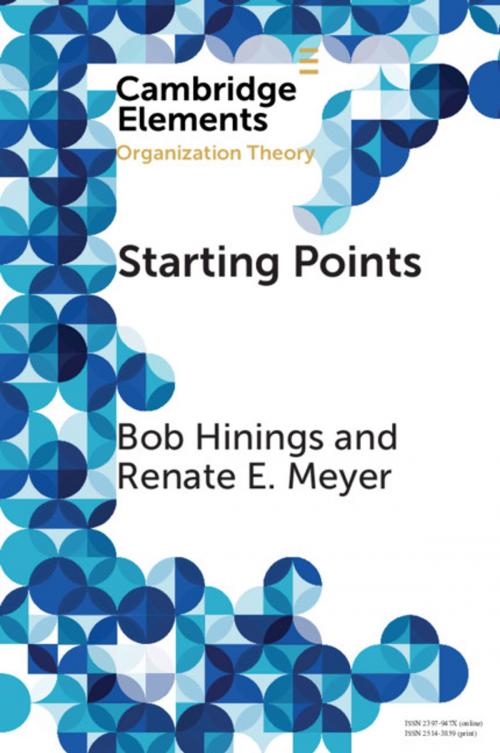Starting Points
Intellectual and Institutional Foundations of Organization Theory
Business & Finance, Human Resources & Personnel Management, Organizational Behavior, Nonfiction, Social & Cultural Studies, Social Science| Author: | Bob Hinings, Renate Meyer | ISBN: | 9781108693134 |
| Publisher: | Cambridge University Press | Publication: | August 16, 2018 |
| Imprint: | Cambridge University Press | Language: | English |
| Author: | Bob Hinings, Renate Meyer |
| ISBN: | 9781108693134 |
| Publisher: | Cambridge University Press |
| Publication: | August 16, 2018 |
| Imprint: | Cambridge University Press |
| Language: | English |
This Element reviews the first 120 years of organization theory, examining its development from the sociology of organizations and management theory. It is initially organized around two streams of thought. The first is found in political economy and the sociology of organizations, with an emphasis on understanding the new organizations that arose in the late nineteenth and early twentieth centuries. The second derives from practitioner–scholars, whose aim was to provide theories and approaches to managing these new organizations. The Element then shows how each of the streams of understanding and managing came together to produce organization theory. In doing this, it also describes how the institutional frameworks in academic associations, academic centres and journals came out of these approaches and how they strengthened the development of organization theory.
This Element reviews the first 120 years of organization theory, examining its development from the sociology of organizations and management theory. It is initially organized around two streams of thought. The first is found in political economy and the sociology of organizations, with an emphasis on understanding the new organizations that arose in the late nineteenth and early twentieth centuries. The second derives from practitioner–scholars, whose aim was to provide theories and approaches to managing these new organizations. The Element then shows how each of the streams of understanding and managing came together to produce organization theory. In doing this, it also describes how the institutional frameworks in academic associations, academic centres and journals came out of these approaches and how they strengthened the development of organization theory.















